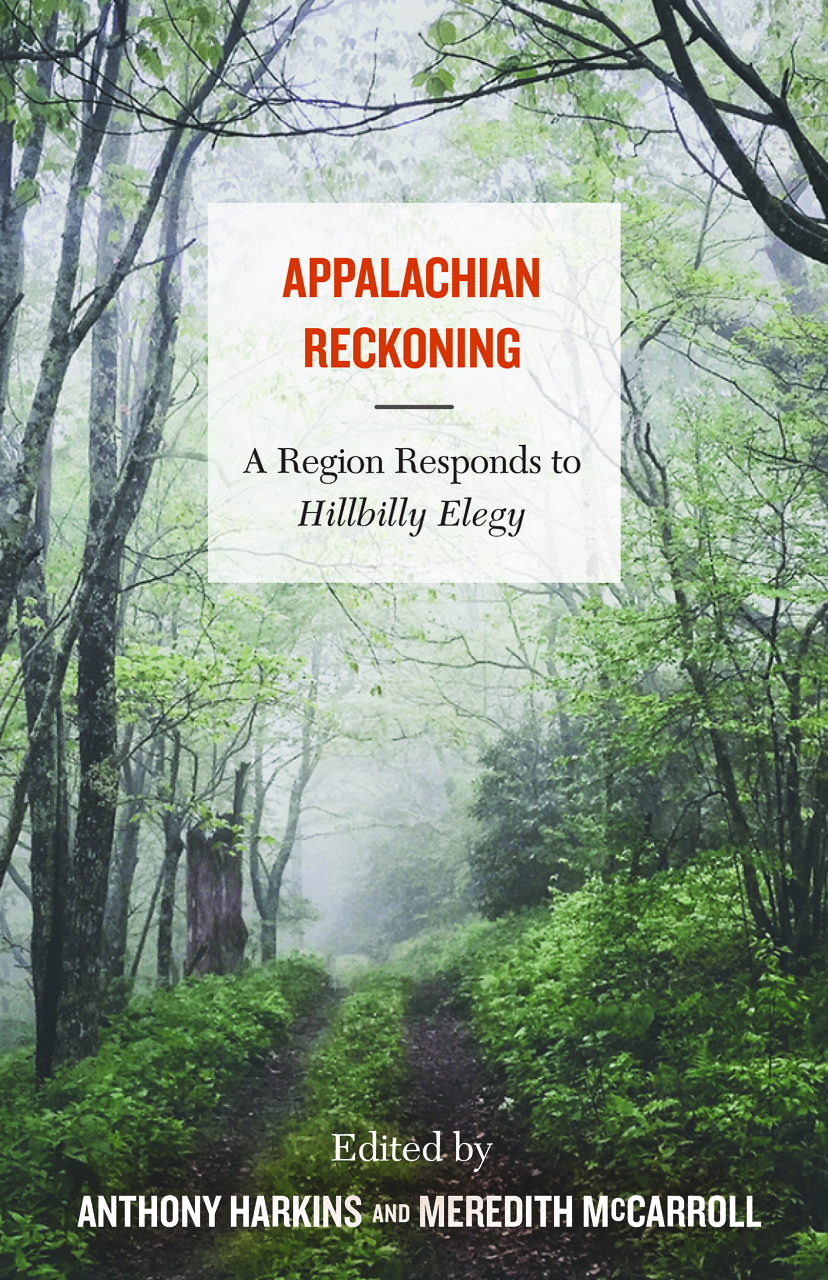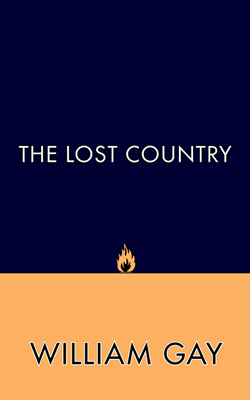Seeing Sparks
Minton Sparks brings to life the South of strained relations and small-town sirens
When Marshall Chapman took the stage at The Station Inn two weeks ago, she could not have looked more the headliner. She was barefoot the whole night—barefoot walking around the bar in baggy jeans, barefoot in what looked like a man’s button-up shirt, barefoot onstage. Her hair was crazy, windblown and half-clipped up on top of her head like Pebbles. A less inhibited performer you couldn’t imagine. And yet, after letting loose with a string of unguarded personal details, she sounded almost apologetic.
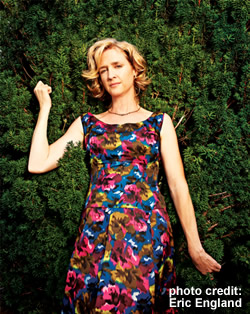 “Minton Sparks makes me act this way,” Chapman said, leaning her lanky frame in close to the microphone. “I see her up here and I think, ‘Shit, I’m not as free as I thought I was.’ ”
“Minton Sparks makes me act this way,” Chapman said, leaning her lanky frame in close to the microphone. “I see her up here and I think, ‘Shit, I’m not as free as I thought I was.’ ”
Funny, I was sitting on a barstool thinking the same thing. As Chapman recounted a story about what goes on inside Willie Nelson’s tour bus (exactly what you suspect), I looked around for Sparks, the opening act who’d descended the one-foot-high stage a few minutes earlier to a roomful of enthusiastic applause. She’d clip-clip-clipped in her cream-colored vintage heels behind a curtain next to the bar and disappeared out of view.
Maybe Minton (born Jill Webb) had changed clothes and simply slipped incognito into a crowd of denim-clad strangers. She says the name she invented by cobbling together her grandmother’s maiden and married names no longer feels like a character she plays but the person she actually is. “Call me Minton,” she tells interviewers, possibly to ward off further lines of inquiry.
But now that I’d seen her put on a show unlike anything I’ve ever witnessed, I was skeptical about how easily she could disappear. Fifty minutes earlier, she’d opened her set with what she identified as “an up-tempo funeral poem.” By the time she finished, the audience reacted like Alice might have if she’d been pushed back up through the rabbit hole: surprised and slightly unnerved to find everything on Earth going along as she’d left it.
Sparks started off performing for a crowd chatting amongst themselves. A long line snaked from the bar, and some seated backs were turned away from her. Within seven minutes, though, the whole audience was in her thrall, including a man halfway out the back door. He turned around and stared as Sparks began reciting a poem called “Vickie Pickle’s Momma.” Sashaying sideways across the stage, pulling at the skirt of her dress and clutching a purse in the crook of her arm—a trademark that’s less a prop than a signifier of identity—she spoke in a gravelly voice with an exaggerated accent:
The first time I laid eyes on
Vickie Pickle’s momma, she was strutting to the snack bar,
—a two-piece
leopard-print bathing suit.
Ten push-ups
on the concrete beside the pool
draw boys’ eyes like flies
Before she orders curly fries and a co-cola.
Beside her sat her brilliant accompanist, John Jackson, as he always does during shows, moving his head to the music. All along he kept a kind of conversation going with her on guitar, but it wasn’t keyed to the content of the words so much as to their sound and force. Sparks has all the right, subtle moves, but the real dynamism is in her voice. The timbre of her speaking voice, along with her facial expressions and the grip of her free hand, changes with each character she names.
By the show’s end, the audience feels slightly exhausted for her, and worn out from having gotten caught up in one piece after the next, punched at every emotional level. “What was that?” I heard a man in a suit ask his date after Sparks had gone.
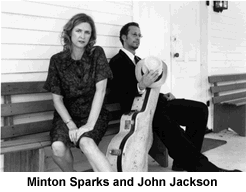 “That was a whole lot of living,” she answered, and her words stayed with me for long after the show.
“That was a whole lot of living,” she answered, and her words stayed with me for long after the show.
What I felt, I realized, was pretty much exactly what Minton had told me to expect. “After seeing my show,” she’d said when the two of us met at a coffee shop one morning the week before, “people are emotionally exhausted. Like in New York [where she’d just performed], people who’d been in the audience would say things like, ‘Oh my gosh.’ Not because it was phenomenal; they’re just emotionally exhausted.”
She took a sip of water. “And they’ll come again! I think people want to feel.”
Clearly they do, and have. In April, in the wake of her most recent spoken-word album, coincidentally titled Live at The Station Inn—where she’ll return to perform August 25—Sparks was given an honor without precedent at the prestigious Conference on Southern Literature in Chattanooga. At the urging of one of Sparks’s most ardent champions, novelist Dorothy Allison, the Fellowship of Southern Writers gave her the first spoken-word award in its twenty-four-year history—an award essentially created just for her. “I think of Minton as the spirit daughter of my mama and every desperate gospel singer I ever listened to in the dark of night,” wrote Allison in her citation for the award. “Her people are my people, stubborn, ashamed, refusing to be shamed, wrongheaded but genuinely righteous, and always plain spoken in the best sense—using the everyday poetry by which hard-used people speak of their own lives. She calls herself a speaker/songwriter, which is a modest avoidance of the range and power of what she does with the spoken word. Memoirist, essayist, storyteller, ethnographer, performance poet, buck dancer, and accomplished liar, this speaker/songwriter lays bare the world of her family and her tribe. … She has partnered with Waylon Jennings, and opened for artists like Nanci Griffith and John Prine. She knows who she is.”
Then, last month, Sparks spent back-to-back weekends performing at the Manhattan Theatre Source in New York. The shows came at the behest of producer Andrew Levine, whose credits include the recent Broadway revival of David Mamet’s Speed-the-Plow. His company, Flying Machine Productions, works to generate new Broadway musicals, and after seeing Sparks at a small Newark art gallery last year as part of the Dodge Poetry Festival, he approached her about developing her hard-to-classify art into a stage production. She is currently writing the treatment. “It’s exciting to think of taking my characters/stories in a broader direction,” she says.
But as Sparks herself will tell you, the best way to experience her hybrid of performance poetry, music, and monologue artistry is live—especially in a venue like The Station Inn, where she and Jackson cast their spell on people likely to hear their own relatives, histories, and family secrets reflected in her pieces. In the city where Music Row resists innovation even as it dominates the music-industry landscape, Sparks may be the most original voice operating on the periphery of country.
“I stay a member of the Country Music Association so that every year I can always draw a little box under the names listed for Entertainer of the Year and write in Minton Sparks with a check next to it,” Marshall Chapman says. “She is, year after year, the most entertaining. I feel like she’s my sister.”
Probably no one in the world has written as well, or as favorably, about Sparks as Chapman, who has repeatedly (and aptly) described Sparks as “the love child of Flannery O’Connor and Hank Williams.” She does sound the part—and look it, too. “Sparks walks on stage,” Chapman wrote in a 2008 article for Garden and Gun, “looking like some woman who took a wrong turn from a Ladies Auxiliary meeting in rural Tennessee circa 1950, clutching a bone pocketbook containing God-only-knows what.”
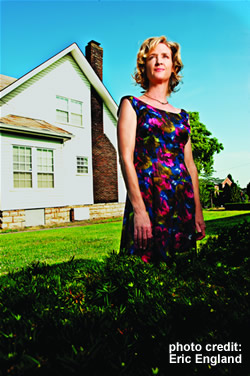 Over the years, that look has evolved. Because her first record, 2001’s Middlin’ Sisters, was a “love letter” to her grandmother, Sparks used to perform wearing her grandmother’s dresses. Now she just wears dresses that grandmothers would approve of. Modest and high-necked, they all hit just below the knee, and are often looped around the waist with a thin leather belt, cinched to its narrowest size.
Over the years, that look has evolved. Because her first record, 2001’s Middlin’ Sisters, was a “love letter” to her grandmother, Sparks used to perform wearing her grandmother’s dresses. Now she just wears dresses that grandmothers would approve of. Modest and high-necked, they all hit just below the knee, and are often looped around the waist with a thin leather belt, cinched to its narrowest size.
Onstage she carries one of two purses, her favorite having belonged to her paternal grandmother, who left it to Sparks in her will. It’s still filled with her possessions, “dusty though they may be.” Sparks has a particular affinity for women’s purses, as exemplified in the piece “Her Purse.” “My mother,” she says, “could pull out a brush, a compact, a lipstick, some Juicy Fruit gum, a small hairdryer, Kleenex, a buckeye for good luck, lotion, a checkbook, a wallet, directions to Daytona Beach, Florida, plastic handcuffs, a dog collar, harmonicas for us, tons of loose change, a camping fork and knife, and keep on going.”
She’s been known to let an audience member hold it, and her purse has been known to come back to her with things missing. About a show to which Sparks forgot to bring her purse, Jackson deadpans, “You would have thought she couldn’t speak without it.” Mostly, Sparks holds the microphone close to her mouth with one hand, makes a gentle fist with the other, and lets the purse dangle in the crook of her elbow. “In my family,” she says, “women’s purses never lost human contact. They seemed off-limits and mysterious.”
That could also describe how Sparks appears onstage. She has perfect posture and elocution, styled hair and clean fingernails, all of which sound unseemly for a writer whose specialty is old-time Southern rural family life in all its rail-whiskey, Bible-beating, beautiful squalor. But her talent, supported by the keenness of her detail, tends to squelch any suspicions people have about her authenticity.
Offstage, Sparks is nothing if not well-spoken and gracious. “I wouldn’t be able to do this work without women who’ve already made it in some way, like Marshall [Chapman] and Dorothy Allison,” she says. “It’s so propped up on the shoulders of my community. Friendship is central to my work being in the world. People offered me their connections because I wasn’t in that world.”
What world were you in?, I ask.
“I was raising kids,” she says. “I went to divinity school and I was a therapist for a lot of years, and I taught psychology for 13 years. I had about a hundred jobs before I did this.”
Now in her late forties, Sparks didn’t “find her work” till she was thirty-six. She’d been writing all her life and had had some minor publishing success with her poetry. (She has since published two novels, White Lightning [Thomas Nelson, 2008] and Desperate Ransom [Thomas Nelson, 2007].) But it wasn’t until 1999, when she started performing her pieces with music, that she found a wider audience for her work. “I hope the writing stands on its own,” she says, “but when you perform it, there are like 8,000 other layers and the music actually gets what the emotion of it is.”
Yet there’s a musicality to her work even without the music. Her writing tells the truth the way X-rays tell the truth; there’s no hiding. Looking inside makes some people uncomfortable, but for Sparks that’s no deterrent. You imagine that above her desk there might be a sign, like from a fortune cookie, reading, “Get comfortable being uncomfortable.”
Except Sparks doesn’t write at a desk. “I write in my car,” she says, explaining that if she tries to write, nothing comes. So instead, “I’ll be walking and I’ll use my phone to text myself notes, like this one.” She shows me a cryptic, two-word text message: MIRACLE POPSICLES. “I have little notes everywhere,” she says. “When I write in my car, I’m channeling my female relatives. I’m given it. I’m not that great a writer.” She pauses. “It’s not like I’m Shirley MacLaine; ‘channel’ is a funny word. But what I write is given to me.”
Nevertheless, Minton Sparks is more than just a one-woman Ouija board, cranking out experiments and family ghosts for their own sake. It’s tricky to define what she is, exactly. “What I’m doing is not a genre,” she says. “I started out as a spoken-word artist straddling the music world, but it’s evolved since then. Um, I don’t know. Let me think.” She thinks. “I feel like I’m a songwriter, like I really am a songwriter. I didn’t want the music to be separate from it, because, you know, Anne Sexton had a band.”
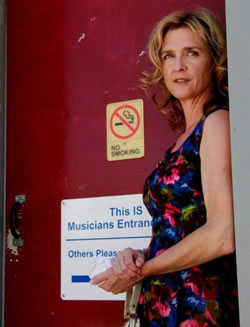 She settles on “speaker-songwriter,” which both is and is not accurate. Or, rather, she does speak and she does write songs, but she also does more. “They’re songs,” she clarifies. “It’s not some jazz music they’re playing behind you while you read. It’s poetry in conversation with music.” Listening to her four albums, including the one recorded live at the Station Inn, is like switching from FM to AM on the radio. Sparks is tuned in to a different frequency.
She settles on “speaker-songwriter,” which both is and is not accurate. Or, rather, she does speak and she does write songs, but she also does more. “They’re songs,” she clarifies. “It’s not some jazz music they’re playing behind you while you read. It’s poetry in conversation with music.” Listening to her four albums, including the one recorded live at the Station Inn, is like switching from FM to AM on the radio. Sparks is tuned in to a different frequency.
Remember that old theater rule that if someone brings a gun onstage in act one, the gun has to be triggered by the end of the show? Sparks’s word choices are so precise, her lines so tight, even the laugh-out-loud pieces build up a similar kind of tension. Poet Marie Howe once described a time as being “very much like the moment, driving on bad ice, when it occurs to you your car could spin, just before it slowly begins to spin.” That’s what it’s like to listen to Minton Sparks perform her spoken songs, with the only difference being that Sparks actually takes the wheel and spins over ice on purpose. With the poems she performs, as expertly as a sniper firing a rifle, she’s not interested in inflicting superficial injuries. Or for that matter, superficial anything.
“The women in my family,” she said at The Station Inn by way of introducing a new piece, “we didn’t engage in foot-binding but we did have some stove-tying.” The poem, about the fierce, familial battle between desires for attachment and freedom, ends with a mother’s spoken words interspersed with her unspoken true inner voice:
“Who the hell do you think you are?”
—girl, don’t run off and leave me,
“I ought to jerk a knot in you.”
—what will I mean to you then?
“You’ll never amount to nothing.”
—oh lord, child, please don’t pass me by.
“Stove-tying” calls to mind several memoirs, penned by women, exploring the complicated dynamic between mothers and daughters. When I got home that night after the show I flipped through my copy of Vivian Gornick’s memoir Fierce Attachments until I came to this passage about her mother: “She hadn’t understood that going to school meant I would start thinking: coherently and out loud. She was taken by violent surprise… . ‘What are you talking about?’ she would shout at me. ‘What are you talking about? Speak English, please! We all speak English in this house. Speak it!’ Her response stunned me. I didn’t get it. Wasn’t she pleased I could say something she didn’t understand?”
In Gornick’s book, the daughter’s guilt for her failings has the power to return her to her mother’s yoke on and off their entire lives. It’s a theme that recurs in memoirs that address the mother-daughter bond, such as Carolyn Kay Steedman’s Landscape for a Good Woman and Simone de Beauvoir’s A Very Easy Death. Sparks, a voracious reader hugely interested in women’s studies, unpacks the relationships between female relatives in a similar way, using music and fewer words. In her work and in conversation, she conveys a deep drive to explore how her innovative, musical form can capture truth—not just her own truth, but that of mothers as well as daughters, sisters, aunts, and old friends. She brings compassion and humor and, most of all, life to her subjects.
Another piece, “Fill Her Up,” told from a daughter’s perspective, describes “Momma” working at a gas station. Imbued with sexual innuendo and confusion, it closes with these lines:
Lord knows she’s played with fire.
For years I burn
with what I learn there
on the outskirts of Memphis.
A young girl can’t fathom
what a hard woman knows.
In conversation, I tell her something my great-grandmother used to say: “Women can only have three of these four things: marriage, career, children, and herself.” I ask Sparks if she’s found this to be true in her own life. “Well, I’ve completely been a mom,” she replies. “I don’t know what my kids would say about that, but that’s been my main focus. And writing. So they’ve both been. I think it’s so important to find your work. My mom didn’t find her work and I just watched that. It’s so important.” She mentions the support of her husband and teenage children.
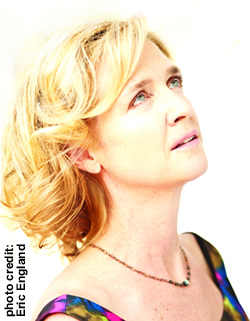 “My stories are all about women and redemption,” Sparks says. “I’m on my fifth record and I can’t do the same thing. My show is always changing because it’s a spiritual thing. The older stories I’m still telling still feel like healing stories. I’ve done tons of personal healing work and I’m nowhere close to done.” Plus there’s the fact that people call her up to share their own stories, often prefaced with, “You’re not going to believe this.”
“My stories are all about women and redemption,” Sparks says. “I’m on my fifth record and I can’t do the same thing. My show is always changing because it’s a spiritual thing. The older stories I’m still telling still feel like healing stories. I’ve done tons of personal healing work and I’m nowhere close to done.” Plus there’s the fact that people call her up to share their own stories, often prefaced with, “You’re not going to believe this.”
Onstage at The Station Inn, Sparks wears a below-knee-length pastel flowered dress, and her light brown hair curls around her face. Next to her sits guitarist Jackson. Sparks describes Jackson’s accompaniment as subtle, which it is, because after hearing her almost-songs there’s never a tune to hum or anything stuck in your head other than her lyrics. But the music itself does work on a different level, in a way that melts you down and opens you up to hear and receive the words. “After seven years of performing with her,” says Jackson, a top-shelf sideman whose credits include stints with Bob Dylan, Shelby Lynne, and Lucinda Williams, “I can say there is no one doing anything close to what we do, and she is the very best there is.” (Now there’s a collaborator—complementary and complimentary.) “All I try to do,” he says, “is set the mood for the piece to enhance the story she is telling.” His playing provides an emotional subtext to Sparks’s narratives, adding to the tension, the humor, the darkness, whatever it is she’s spreading around the room.
Middlin’ Sisters was all about the women in her family, specifically Sparks’ grandmother and her sisters. Her subsequent albums have mined the same territory, with surprisingly fresh results. “I’m not writing to anyone,” she explains. “I’m writing to my children in a way, as an historical record.” Some of her pieces she can’t believe she’s performed in public, but she decided to write them as if no one was going to hear them.
“Family life will eventually be over,” she says, “but I’ll be writing for the rest of my life.” Her arms rest a moment on the metal table, but they don’t stay there longer than a few seconds. It’s not that she talks with her hands, but that she always seems to be moving. She sits forward. She leans back. “I don’t know if I’ll always be performing,” she muses, “because you can’t control whether or not people want to see you. Maybe I’ll perform for the neighbors.” For a minute or two, she steers the conversation towards me while I try to steer it right back to her. But in this match I don’t have a prayer. I’m sitting across from someone who has honed the art of sizing people up in glances, of deflecting the curiosity of others while her own cool gaze quietly files away information.
She looks me dead in the eye and smiles. “What’s your story?”
